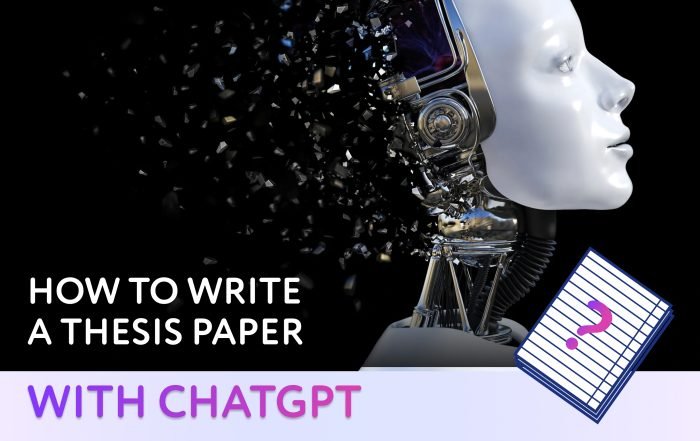How to Write an Expository Essay
Are you anxious about writing an expository essay? Well! We have a solution for you, check out Essay brother’s premium expository essay writing services that are destined to ace all your expectations. Our qualified writers will get it done in no time and 100% quality assurance guaranteed. But if you stuck with personal statement writing you can go to Write my personal statement on our blog.
The Best Expository Essay Brief
This article will let you know the details and necessary requirements you will need to write a great expository essay with precision and accuracy so gear up.

What’s an Expository Essay
The expository essay definition states that it is a type of academic writing that presents information and analysis in an organized, clear manner. The author presents information about a topic, sometimes with some analysis. The expository essay can be used to explain or describe something, but it should not contain any argumentative or persuasive content.
An expository essay is meant to teach or inform the reader about a particular topic. It’s also known as a persuasive essay, because it attempts to convince the reader of your opinion through the use of facts, examples, and analysis.
Expository essays are often used to discuss a topic in great detail. They are usually written as a narrative and are used to present information that is not readily available to the reader. Expository essays can be found in a number of different types of media, including journals, magazines, newspapers, and book chapters.
Expository Essay Writing Process
In order to write an expository essay, you will need to do research on your topic and gather all the relevant information you can, and then organize it into a logical, cohesive argument. You should also use transitions between paragraphs to clearly link ideas together and create a clear structure for your essay.
When writing an expository essay, you should start with a thesis statement. A thesis statement is the central idea of your essay, and it should be supported by facts and evidence. The thesis statement should be written in the first paragraph. The second step is to provide a topic sentence that explains how the topic relates to the body of your paper. This will help make your point clear and concise.
After this, you can present your arguments or supporting evidence for each argument in succession. You may want to use examples or metaphors to make your points more vivid and interesting, but don’t go overboard; keep it simple! Finally, conclude with a conclusion statement that ties everything together and gives readers a sense of closure on each section of your essay.
The most important thing to remember is that an expository essay should be clear and concise. Don’t include unnecessary information that might distract from the main point you’re trying to make. Try not to use too many words in general, and don’t use big block quotes or boldface text as they can appear intimidating or even preachy. As with any type of writing, it is important for you to keep in mind the audience for your expository essay. You should also consider their level of education and experience with the subject matter.
When writing an expository essay, it’s important that you don’t overlook any details that may help your readers better understand your point of view on the subject matter at hand. Try to avoid getting distracted by extraneous ideas that don’t contribute anything valuable to your argument or conclusion.
If you’ve published multiple expository essays on a particular topic or event, then you should use those pieces as examples when preparing another piece on the same topic or event later on down the road. This will help make sure that new readers will understand what you mean when talking about those earlier articles without having to read through them again themselves.

Thesis Statement
The main idea of the expository essay is to present information in an organized and logical way. The thesis statement should be clear, concise, and focused on one main point. It should be something that can be clearly understood by both yourself and others. For example: “I believe that it is important for children to have access to books because it will help them become better readers.”
Body Paragraphs
Each body paragraph will begin with a topic sentence that explains what you are going to discuss in that paragraph. The body paragraphs should be clearly related to each other and each topic sentence should support at least one fact supporting your thesis statement. For example: “In order for children to become better readers they must have access to books.” (topic sentence)
Body paragraphs contain supporting details about your argument or ideas. The body paragraphs may also include quotes from sources or paraphrased statements from other people if they help you prove your point. “Books are good for children because they help them develop their skills.” (supporting fact)
Examples of what not to do: Do not write more than 1-2 sentences per paragraph; do not use more than 3 supporting facts per paragraph; do not use too many parentheses; do not make sure your paragraphs are completely finished before moving on.
Expository Essay Format
An expository essay is a style of writing that uses facts to support a thesis statement. The author explains the topic and then supports it with examples. They are usually written in paragraphs, but there are no rules about how many paragraphs or how many sentences make up a paragraph.
- Introduction: It is a short paragraph that introduces the topic of the essay and justifies why you are writing it. You need to tell your reader what you are going to discuss in this section and give them a brief idea about what they will learn from it.
- Body: This section is where you can explore the topic in detail. You can present your arguments, support them with evidence, and explain why they are important or how they relate to other topics.
- Conclusion: Here you summarize what you have discussed in the body section so that it will be easy for your reader to understand the main ideas. You can also give some advice about how to use what you learned from this subject for future reference or how this information might help them solve other problems related to their lives.
Do you want your expository essay written according to the correct format? So, order yours now https://essaybrother.com/
Expository Essay Writing Guide
Writing an expository essay is all about making your point in the clearest way possible. While there are many different ways to do this, here are some tips on how to make your writing more effective:
In the expository essay, you will be expected to write about a topic that you are familiar with. This can range from something as simple as your favorite children’s book to something as complex as an election. The key to writing an expository essay is to clearly state what your argument is and how it will support your thesis statement. You should also make sure that your evidence supports your thesis statement.
To make sure that you have strong evidence supporting your argument, use details from your own experience or cite sources that support what you have written (either by providing a quote or providing a link).
Make sure that the details in your argument are relevant to the topic at hand and not just any old random facts.
- Make sure you have a clear thesis statement and supporting arguments.
- Remember that the purpose of an expository essay is to convince readers that your position is correct, and that you have researched and though9t about the topic enough to justify your position.
- Look for evidence, not just personal opinion or feelings about a subject.
- Keep in mind the audience’s background knowledge when writing an expository essay, especially if it is challenging or unfamiliar to them (for example, if you’re writing one about climate change).
- Use interesting examples, statistics and/or stories from real life as appropriate, but remember that they should still be relevant to your argument; they should not be overused or used as proof by themselves (this can make it seem like you’re just trying too hard).
Expository Essay Structure
The structure of an expository essay is straightforward. It begins with a thesis statement, which explains what you will be arguing in support of. The next paragraph should then explain the reason why your thesis statement is true and why it needs to be accepted by your readers. This may include details about how or why your claim supports your argument. If there are any examples that illustrate that claim, those should be included here as well. Then you can conclude with a call for action or conclusion statement, which summarizes what you have said throughout the rest of your paper.
Here’s a step by step guide of structure of expository essay:
- Write your thesis statement first. This should be one sentence that succinctly describes what your goal is for this essay—for example, “I want to explain why I think playing video games increases children’s attention spans.”
- Introduction for expository essay states your thesis and introduces the problem you’re trying to solve with this essay (e.g., “The problem with kids today is that they aren’t paying attention anymore.”). Be sure to connect back with your thesis statement if possible (for example, “If we want our kids to pay attention in class, we need them engaged in activities outside of school like playing video games
- The body paragraphs is the area where you may go more into the subject. You can offer your ideas, provide evidence to back them up, and explain why they are significant or how they relate to other issues.
- In the Conclusion section, you recap everything you covered in the body section so that the reader may easily comprehend the important points. You may also give them advice on how to apply what they learnt in this topic for future reference or how this information might assist them overcome other challenges in their lives.
Expository Essay Outline
A good expository essay is one that covers a topic in an organized and thorough manner. It explains the topic in such a way that it can be understood by the reader, even if they don’t have any prior knowledge about it.
In this example, you’ll see a formal approach to expository writing outline. This is perfect if you want to convey complex ideas or information in a clear and concise way.
The expository paper outline goes by writing the first paragraph which begins with a thesis statement and then gives some background information. The second paragraph describes how this particular topic fits into the overall scheme of things (i.e., how it relates to other ideas). The third paragraph develops on this point, explaining why this particular subject matter is important or significant within its context.
Finally, there’s a conclusion that summarizes what we’ve learned about this particular topic and ties everything together with a final point or observation based on our research.
Expository Essay Outline Template
The expository essay has three parts: introduction, body and conclusion. The introduction has one paragraph that contains the purpose of writing the expository essay. It also includes information about the topic being discussed as well as how they will use this information to prove their point. The body consists of two parts: one part that gives details about what was discussed in the previous paragraph and another part that explains how these details are relevant to proving their point or supports their argument. The conclusion summarizes what was discussed in the body part by giving examples and explanations for why it supports or does not support their argument or thesis statement made in the introduction paragraph.
For example: My goal as an expository essay writer is to persuade my audience into believing whatever I have written about. I will use facts from my research on my topic and provide reasons why they should accept my claims without any reservation or doubt in their minds. This will help me reach my goal because if they accept what I wrote then they will.

Article was written by Fedinand G
Hi! I’m Fedinand Getankwa. I have a 5-year working experience doing academic writing for the past 5 years. I have also done non-academic ghost-written blog content for 3 years now. I take projects that I can handle within the stipulated time and deliver them before the deadline has passed. I am comfortable taking multiple projects at a go because I can easily juggle through them at the convenience of the client.
How to Write a Thesis Paper with ChatGPT
[joli-toc] Have you heard about Chat GPT and its partners lately? Do you want to know if everything they say about this tool is true? Do [...]
How to Write a College Assignment
[joli-toc] How to Write College Assignment Properly It is considered that college assignments are very useful for students because they help an individual to write [...]
How to Write a Personal Statement for College
[joli-toc] Personal Statement for College Application When applying for university, you need a compelling narrative about yourself, which will sell you out as a potential [...]







